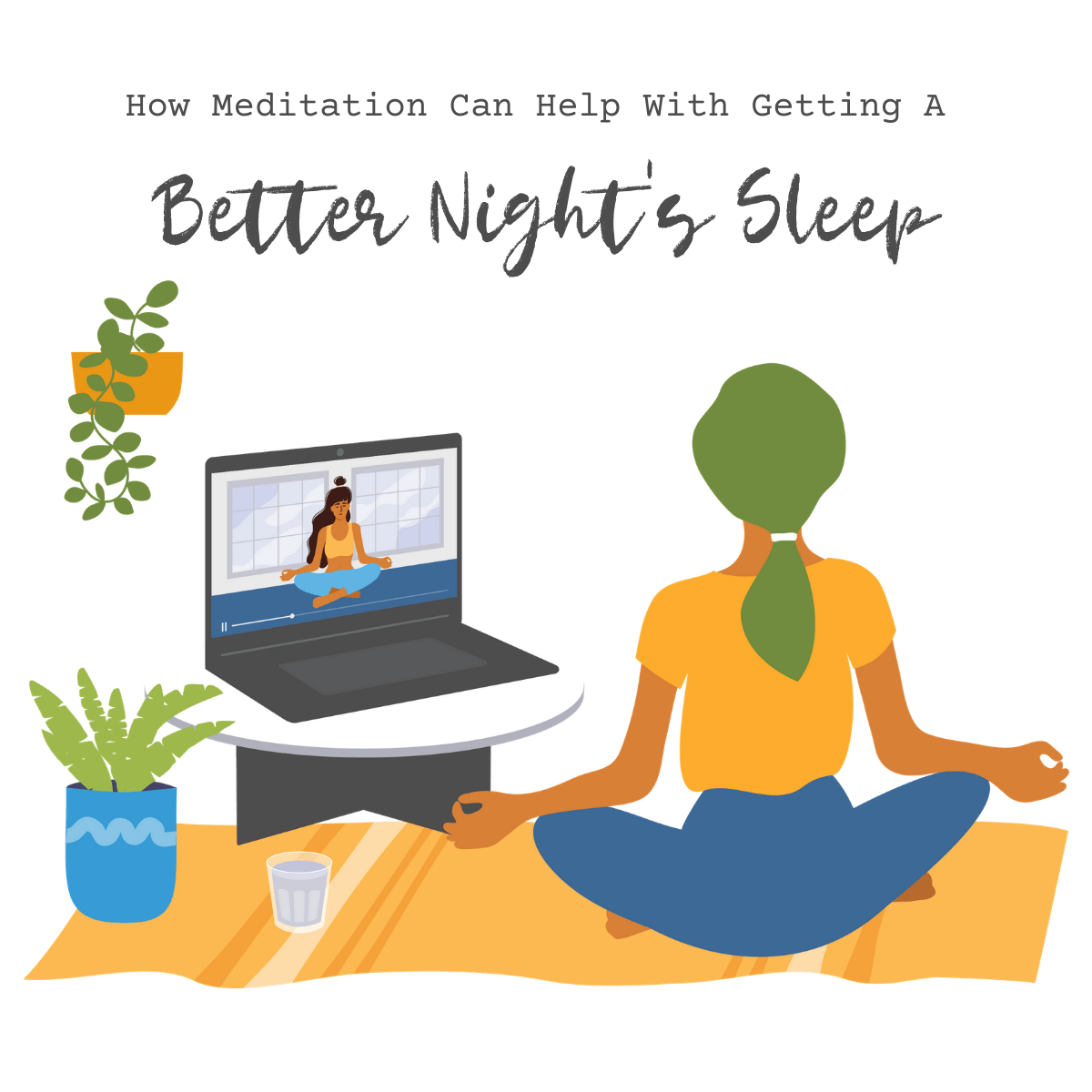If you are struggling with getting a good night’s sleep, consider the benefits of meditation. Meditation that focuses on sleep helps one be present in the moment. Meditation can help create a calm state, by clearing the mind in preparation for sleep.
Distraction can be a great way to cope with anxious thoughts during the day but what happens when it is time to sleep? Do you start engaging in mental activities such as counting sheep? Perhaps scrolling through social media out of boredom but find your mind overstimulated and even more “cluttered”. Do you check the time and realize you “should” be sleeping by now? Focusing on difficulties falling and staying asleep can make things even more stressful!
Mindful Meditation is a great practice that can be combined with other strategies such as guided imagery to help get a better night’s sleep. Meditations that utilize mindfulness-for-sleep may include sensory-rich details of relaxing images of places such as the beach or a mountainside with softly drifting clouds or gently flowing water. While these techniques incorporate an element of distraction, they serve more as relaxation strategies because they can shift one’s focus to positive distractions as part of relaxing meditation.
A body scan meditation brings mindful awareness to different parts of the body, noticing the different sensations as one scans each part of the body. It is common for one’s thoughts to wander. Be kind to yourself as you gently bring back your awareness of your breath and body. Focusing on breathing can help create a sense of calm as one is doing the body scan. Techniques such as breathing in calm and breathing out tension are often practiced with a body scan meditation as we help our bodies naturally relax.
Noticing worrisome thoughts and placing these on an object such as a leaf on a gently flowing stream or a cloud and watching it drift away is a strategy that incorporates mindfulness with cognitive diffusion that many clients find helpful. With mindfulness, whatever worrisome thoughts are present, including the anxiety of not being able to sleep, practice letting these go, allowing and trusting the body’s ability to relax.
The Sleep Foundation has an excellent list of Nine Mindfulness Principles. Thought patterns consistent with these principles (rather than focusing on the negative) can help reduce anxiety and promote a better night’s sleep. These include: a beginner’s mind in your approach to thoughts about sleep/ expectations, non-striving as sleep is not a result of a forced effort, it just happens. Letting go includes letting go of judgments or non-judging, and acceptance. Sometimes you may get a good night’s rest and other times you may not. Trust in your body’s ability to regulate sleep and have patience in the process. Finally, gratitude, allowing yourself to focus on the good things, and showing generosity to others can be positive distractions that can re-shift focus.
Meditation can help when it is used regularly before bed and getting into the habit of daily meditation can help receive optimal health benefits.
Written By: Charlotte Johnson, MA, LPCC
We’re Here to help
Our wellness experts will be happy to take care of you. You can CLICK HERE to schedule an appointment now or call (612)223-8898.
Meet Clinicians
We’re united by our commitment to providing effective, relevant, and innovative mental health support at all stages of your journey. Click Here to find out more about who we are, where we come from, and how we live out CARE’s mission every day.
The professionals at CARE are actively collecting and creating resources to help with what you need. We’re Here for You.




